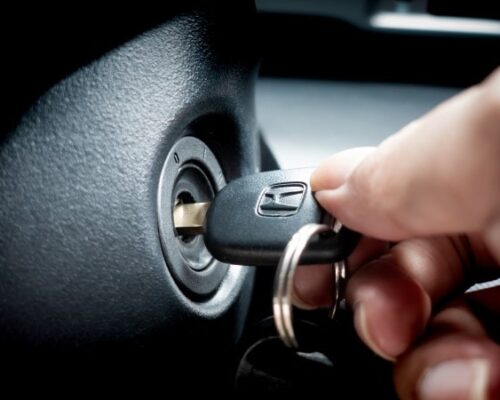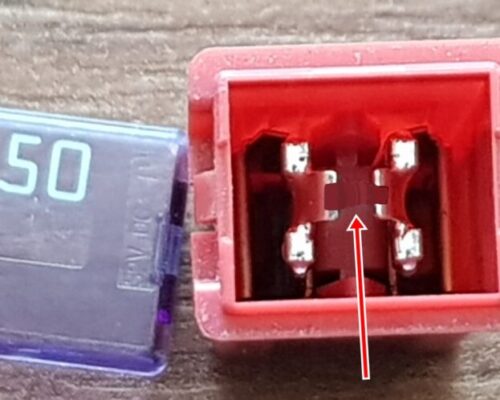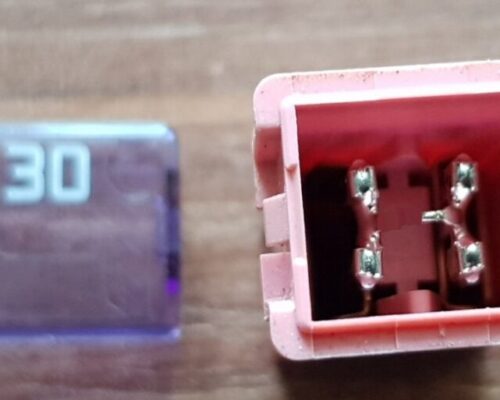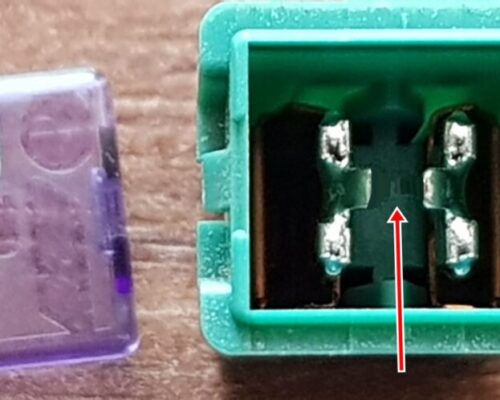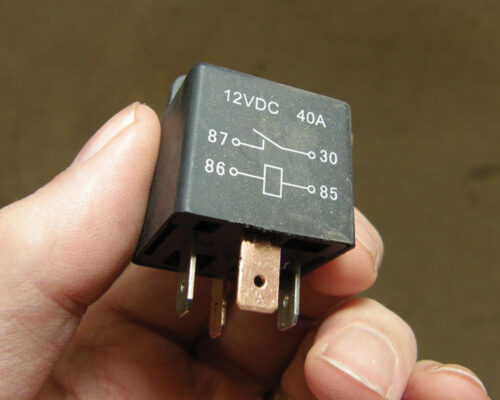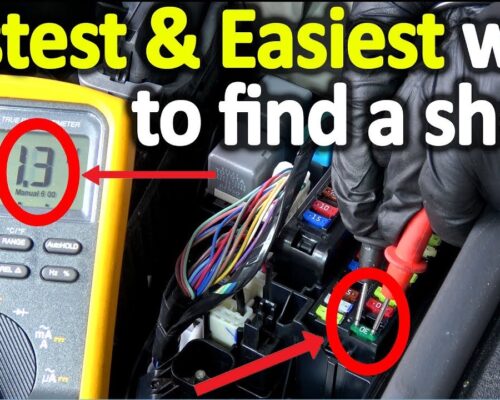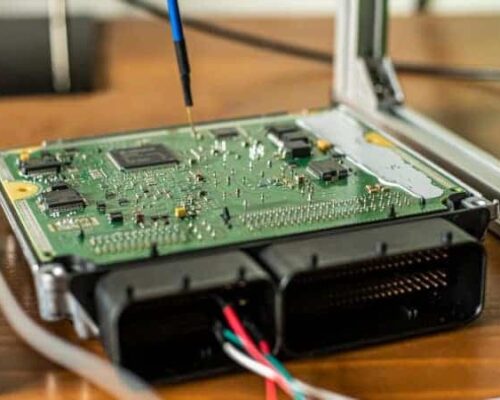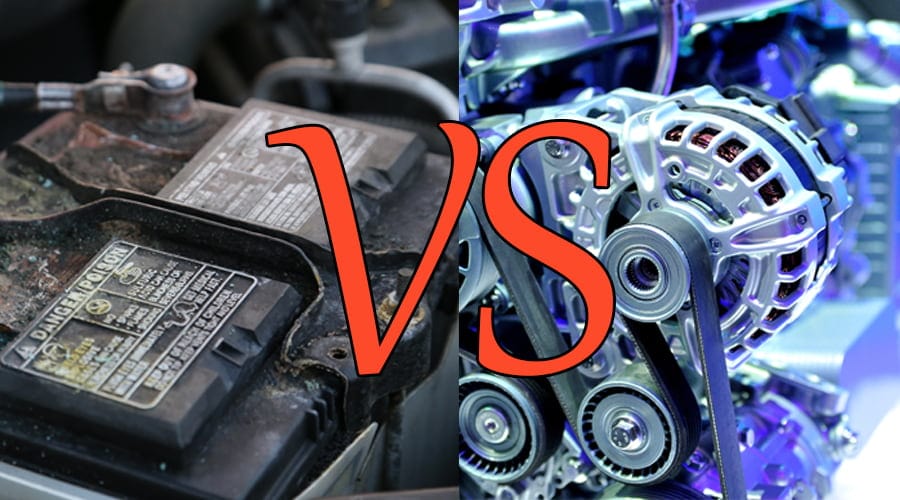
Bad Alternator Vs. Bad Battery [Signs And Symptoms]
If your car isn’t starting, it could be due to a bad alternator or battery. Here are some signs and symptoms that can help you determine which one is the problem.
If the engine turns over slowly or not at all, it’s likely a sign of a bad battery.
If the engine starts but then dies immediately, it could be a sign of a bad alternator. Another symptom of a bad alternator is dim headlights or flickering dashboard lights. If you notice any of these problems, it’s best to take your car to a mechanic to have it checked out.
If your car won’t start, it could be either a bad alternator or a bad battery. How can you tell which one is the problem? Here are some signs and symptoms to look for:
If the engine cranks but won’t start, that’s usually a sign of a bad battery. The battery may be too weak to crank the engine over. If you turn on the headlights and they are dim or flickering, that’s another sign of a weak battery.
If the engine starts but then dies shortly after, that could be a sign of a bad alternator. The alternator provides power to the engine while it’s running, so if it’s not working properly, the engine will eventually die. If your dashboard lights are dimming or flickering while you’re driving, that’s another sign of a failing alternator.
Bad Alternator or Bad Battery, Easy Solved
What are the Signs And Symptoms of a Bad Alternator Or Battery
If your car’s battery is not functioning properly, it can be due to a number of reasons. One possibility is that the alternator is not working correctly. The alternator charges the battery while the engine is running, and if it isn’t working properly, the battery will eventually run out of power.
Another possibility is that there is a problem with the battery itself. If the battery is old or damaged, it may not hold a charge as well as it should.
There are several symptoms that can indicate that your car’s alternator or battery may be having problems.
If you notice any of these issues, it’s important to have your vehicle checked by a mechanic as soon as possible:
-The engine struggles to start, or starts slowly
-The headlights are dimmer than usual
-The interior lights are dim or flickering
-The dashboard lights are dim or flickering
How Can You Tell If an Alternator Or Battery is Going Bad
If your car is having electrical problems, it may be due to a faulty alternator or battery. Here’s how you can tell which one is causing the issue:
If the problem occurs when the engine is off, it’s likely an issue with the battery.
If the problem occurs when the engine is running, it’s likely an issue with the alternator.
A bad alternator will usually cause the battery light on your dash to come on. If your car starts and runs briefly but then dies, that’s another sign of a bad alternator.
A failing battery will often cause slow cranking when starting your car. If your headlights are dim or flickering, that’s another sign that your battery is going bad.
What are Some Common Causes of Alternator And Battery Failure
One of the most common causes of alternator and battery failure is corrosion. Corrosion can occur when the battery terminals are not clean, or if the battery is exposed to moisture. Another common cause of alternator and battery failure is a loose connection between the alternator and the battery.
A loose connection can cause an electrical short, which can damage the alternator or battery.
![Bad Alternator Vs. Bad Battery [Signs And Symptoms]](https://blog.nationwide.com/wp-content/uploads/2014/01/10477_0614.jpg)
Credit: blog.nationwide.com
Weak Battery Symptoms
A weak battery can cause a number of car problems. Here are some common symptoms:
1. Engine won’t start – This is the most common symptom of a weak battery.
If your engine won’t start, it’s likely that your battery doesn’t have enough power to turn over the engine.
2. Lights are dim – If your headlights and interior lights are dim, it could be a sign that your battery is losing power.
3. Slow cranking – When you try to start your car, does the engine take longer than usual to crank?
If so, it could be a sign of a weak battery.
4. Electrical problems – A weak battery can cause all sorts of electrical problems in your car, from faulty lights to strange noises.
Signs of a Bad Battery Vs Alternator
One of the most common questions we get here at AutoZone is, “How do I know if it’s my battery or alternator that’s causing my car problems?” To help answer this question, we’ve put together a list of symptoms for both a bad battery and bad alternator.
Bad Battery Symptoms:
– Car won’t start
– headlights are dim
– dashboard lights are dim
– clicking sound when you turn the key
– slow cranking engine
Bad Alternator Symptoms:
– car starts but dies soon after
– flickering headlights
– strange smells coming from the engine bay
Signs of Bad Alternator
The alternator is one of the most important parts of your car’s electrical system, and it is responsible for charging the battery and powering the electrical accessories while the engine is running. If the alternator fails, the car will eventually lose power and stall. There are several signs that can indicate that the alternator is failing:
1. The dashboard lights may flicker or dim when the engine is first started, and then become bright again as the engine RPMs increase. This is caused by a drop in voltage as the alternator struggles to charge the battery.
2. The car may experience strange electrical problems, like headlights that randomly turn off or power windows that stop working.
3. The battery warning light on the dash may come on, even if there is nothing wrong with the battery itself. This indicates that the alternator is not providing enough power to keep both the engine and electrical accessories running.
4. If you try to start the car and it makes a clicking noise but won’t turn over, this usually means that there isn’t enough power to engage the starter motor.
Once again, this points to an issue with Alternator output not being sufficient..
Weak Car Battery Symptoms
A weak car battery can cause a number of problems for your vehicle. The most common symptom of a weak battery is the engine not starting. This can be caused by a number of things, but the most common is simply that the battery doesn’t have enough power to start the engine.
Other symptoms of a weak battery include dim headlights, electrical problems, and the car stalling. If you’re experiencing any of these issues, it’s important to get your car battery checked as soon as possible.
Can a Weak Alternator Cause Poor Engine Performance
If your alternator is going bad, it can definitely have an impact on engine performance. Your alternator is what charges the battery, and if it’s not doing its job properly, the battery won’t have enough power to start the engine. Additionally, a weak alternator can cause all sorts of electrical problems that will affect engine performance, such as misfires and poor fuel injector function.
So if you’re having engine performance issues and you suspect your alternator might be to blame, it’s definitely worth getting it checked out by a mechanic.
How Long Does It Take for a Bad Alternator to Drain a Battery
One of the most common questions we get here at Battery Solutions is “How long does it take for a bad alternator to drain a battery?” There is no easy answer to this question since there are so many variables that can affect how quickly an alternator can drain a battery. However, we can provide some general guidelines based on our experience.
First, it’s important to understand how an alternator works. An alternator is responsible for charging the battery while the engine is running. It does this by converting mechanical energy from the engine into electrical energy that is used to charge the battery.
However, if the alternator is not working properly, it can’t convert the energy as efficiently and this will cause the battery to discharge faster than it should. In addition, if there is a problem with the charging system itself, this can also lead to faster battery drainage.
Now that we understand how an alternator works and what can cause it to fail, let’s look at some general guidelines for how long it takes for a bad alternator to drain a battery.
Again, these are only estimates since there are so many variables involved but they should give you a good idea of what to expect.
If your car has been sitting for awhile with no activity (i.e., you haven’t been driving it), then a bad Alternator could potentially drain the entire battery within 2-3 days. However, if you have been regularly driving your car and using accessories (like headlights, radio, etc.), then it would likely take closer to 1-2 weeks for a bad Alternator to completely drain your car’s battery under normal conditions.
Of course, if you continue to drive your car with a bad Alternator or don’t take steps to fix the problem quickly (like getting a new Alternator), then you could end up stranded on the side of the road with a dead battery sooner rather than later!
Battery Vs Alternator Vs Starter
When your car won’t start, it’s often because of a problem with the battery, alternator, or starter. But how can you tell which one is the culprit? Here’s a quick rundown of each component and what to look for when they’re not working properly.
The Battery:
The battery provides power to the starter motor, which in turn starts the engine. If your battery is dead, you’ll need a jump start to get going again.
To check if your battery is the problem, use a voltmeter to test its voltage. A healthy battery should have a voltage of around 12 volts. If it’s lower than that, it needs to be replaced.
The Alternator:
Once the engine is running, the alternator takes over from the battery and produces electricity to power the car’s electrical systems and recharge the battery. If your alternator isn’t working properly, your car will eventually lose power and come to a stop.
To check if your alternator is the problem, use a voltmeter to test the voltage while the engine is running. It should be between 13 and 14 volts. If it’s lower than that, you’ll need to replace your alternator.
If you’re having trouble starting your car and suspect it might be an issue with either your battery or alternator (or both), bring it in for a diagnostic test at Your Garage so we can take a closer look!
Car Struggles to Start But Battery is Fine
If your car has been struggling to start but the battery seems to be fine, there are a few potential causes. It could be an issue with the starter, spark plugs, or fuel system.
If it’s the starter, it may need to be replaced.
If it’s the spark plugs, they may need to be cleaned or replaced. And if it’s the fuel system, there could be a problem with the fuel pump or filter.
In any case, it’s best to take your car to a mechanic to diagnose the problem and get it fixed.
Conclusion
A bad alternator or battery can cause your car to have starting problems. There are some symptoms that can help you determine which one is the problem. If your car starts and then dies, it could be a sign of a bad alternator.
If your car won’t start at all, it could be a sign of a bad battery. If your headlights are dimming, it’s probably a sign of a bad alternator.


